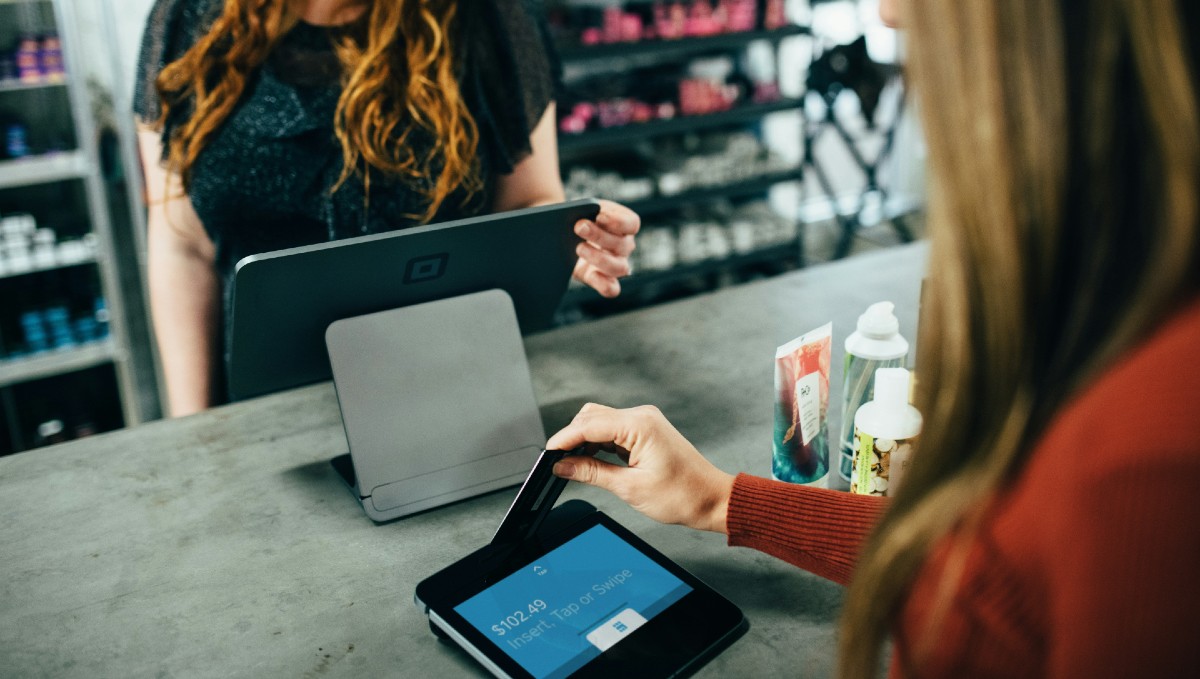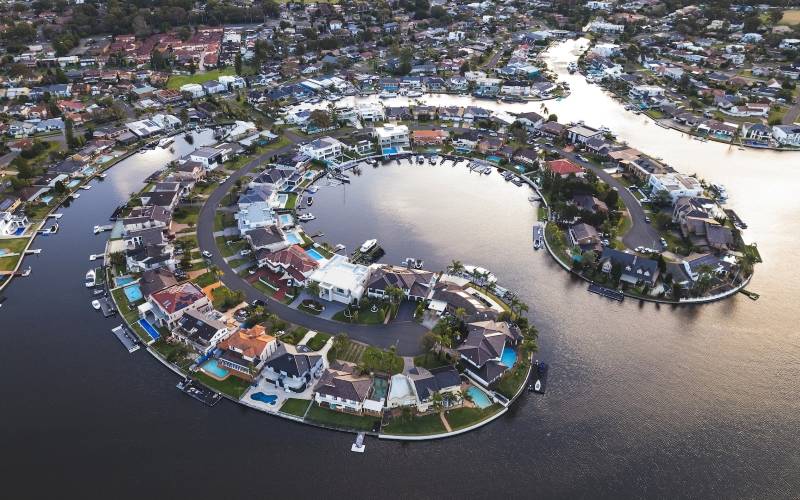As we’ve begun to say goodbye to the dreaded Covid-19 pandemic and lockdowns, many Aussies are eager to scratch their travel-bug itch by ditching our shores and exploring somewhere new.
Yet with airfare prices leaning towards the more expensive side, some eager travellers have opted for rewards credit cards to earn frequent flyer points and cashback offers.
Daniel Sciberras from the credit card deals website Point Hacks said there has been a greater demand for rewards credit cards in recent times given airfares have been through the roof.
“Many of us have been saving for the last two years and have travel credit to spend, pushing demand higher,” Mr Sciberras told The Savings Tip Jar podcast.
“A lot of people have also been looking for ways they can travel cheaper.
“Now one of those is of course by utilising frequent flyer points and getting reward seat upgrades.”
If you’re hunting for a rewards credit card to build up some points for your next overseas holiday, here are some handy tips and tricks to keep in mind.
Credit card rewards are benefits earned by a consumer for simply spending money with their credit card. These benefits often come in the form of rewards points.
Rewards points can often be redeemed for any of the following:
-
Fuel and grocery shopping
-
Store discounts and gift cards
-
Flights, accommodation and seat upgrades
-
Frequent flyer points
Depending on the credit card you have, you may also have access to some other nifty upgrades such as airport lounges, complimentary travel insurance, fraud protection, concierge services, and more.
“People are beginning to look at these programs a bit more seriously, whereas in the past there was a mentality that it was too hard to find a good rewards option,” Mr Sciberras said.
“There are still attractive bonus points on offer out there such as up to 120,000 Qantas and Velocity points with NAB.
“Considering some cheap airfares don’t exist anymore, people are beginning to look into these frequent flyer programs in a lot more detail to see how it can work for them.”
What types of credit card rewards programs are there?
While some of the big four banks such as ANZ and Westpac come with high bonus point offers, Mr Sciberras wants to remind consumers that most credit cards are tiered.
“While those big offers [in the six figure points range] may seem fantastic, they may not be for everyone,” he said.
“With top tier credit cards you usually need to have a certain credit rating, and definitely need to meet the minimum income requirement.
“However, the middle tier credit cards also offer quite attractive bonus points. The middle tier level is usually the one that appeals to a lot of people because the income requirement is around $35,000, although this isn’t necessarily formalised.”
If you’re considering signing up with one of the big banks’ credit cards, you always want to make sure that you’re complying with the rules. Don’t forget to reach the minimum spend requirement, otherwise you won’t get the points - you can wave goodbye to your free flights.
Tips for those looking to take advantage of their credit card for travel
You want to gain all those points as quickly as you can, and as much as you can. After all, your holiday destination is calling your name.
1. Don’t let the card collect dust - use it
One of Mr Sciberras’ main tips is to use your credit card wherever you possibly can - points are points at the end of the day.
“If you have a bonus rewards credit card or any credit card that gives you any form of rewards, the best way to make use of it is to use it on everything,” he said.
"People are more than happy to use the credit card if it's an $80 purchase, but if they're buying a coffee, they'll be like, 'Oh, no I'm too embarrassed to do that.'"
To accrue points, you have to have a wider view of purchases - even the $5 coffee.
Many cards of this ilk have annual fees - so not using it means you're essentially wasting money for nothing,
2. Pay off your card on time
However, using the credit card for everything only works if you pay off your balance at the end of each month. This method should not be attempted if you can’t pay off the balance in full every month. Using your credit card for everything will significantly increase your credit card balance, which can lead to much higher interest charges.
- Check your credit card statement to find out the due date and make sure you consistently pay your debt off on or before the date. This way, you’ll avoid paying extra interest or late fees and you’ll keep your credit score healthy.
- Setting up direct debit or automatic transfers from your back account each month is a great way to keep you on the straight and narrow.
“The main rule is to make sure you pay off your card in full every single month, or else you’re going to end up with interest which will negate any benefit that you’re getting from your frequent flyer points,” Mr Sciberras said.
“You could even come out at a loss, which you definitely don’t want.”
Also, if you can make higher repayments each month, you will pay off the debt faster and save yourself some money.
Many cards have 55 days' interest-free, though some products might offer longer or shorter periods.
3. Look for cards with partnerships
Many reward credit cards have partnerships with specific outlets where you can earn points through buying their products - for example petrol stations, or retailers such as The Iconic, David Jones, Myer, eBay or Cotton On.
Both Qantas and Virgin are partnered with Apple and The Iconic through the Qantas Points Online Mall and Velocity eStore respectively.
While regular spending on your credit card may earn you one point per dollar spent, one dollar at a linked partner such as the ones mentioned could earn you up to three points per dollar.
Have a search to see if any credit cards on the market are linked to particular retailers you regularly visit to help build your rewards points faster.
4. Don’t credit card churn
Mr Sciberras clarified credit card churning (applying for a number of different cards to collect points and then leaving) is never a justified practice.
“While we do think consumers should maximise the number of cards they can get in a particular year, and also take advantage of the competitive pressure that’s happening within the market, they shouldn’t abuse this opportunity,” he said.
“However, it is hard to abuse this as banks now have exclusion periods and spend requirements.”
Applying for multiple credit card products in a short timeframe is also likely to reflect poorly on your credit history.
5. Redeem your points for business not economy flights
One of the best ways to get the most out of your hard-earned points is to redeem flights for business class as opposed to economy. Plus, flying in business class means you can travel in style and comfort.
Take a Sydney-to-Los Angeles return flight, which is 216,800 Qantas points at the time of writing (classic rewards, not points-an-pay) for business class or 83,800 in economy.
A business class ticket is worth more than $15,000 and the economy ticket is only worth around $2,000, so you’re getting 7.5-times more value in a business class flight for only over twice the points.
Mr Sciberras said he has managed to nab several first-class flights using points alone.
"The consumer has a lot to gain because they can experience things that they might might not otherwise be willing to pay for or could even pay for," he said.
"I've been on a few first class flights on Emirates and Qantas over to the United States - all on points.
"I liked the whole concept of rewards programs, but don't just go spending money on anything and everything just to earn points if you're then having to pay interest on it."
6. Only use balance transfers when needed
Mr Sciberras says balance transfers are typically reserved for those who can’t afford to pay back all their debt before interest is charged.
“If you’re in a situation where you have credit cards, you’ve accrued interest, and you’re struggling to pay them off in time, then balance transfers do make sense,” he said.
“It buys you time to hopefully see your circumstances change such as a work bonus or you might transfer to a higher paying job, which will then get you to a point where you’re back on an even keel again.
“For those who pay off their credit card each month, it’s probably a feature you never really need to look at.”
A balance transfer is when you move your credit card balance (the amount you owe) from one credit card/s to another, often to take advantage of a special offer or a lower interest rate.
Many offers have 0% interest payable on balances for up to 36 months, and often zero fees too. Fees typically cost 1-2% of the balance.
Read More: 11 ways you can maximise your rewards points
The new credit card rewards programs on the block
As overseas travel ramps up, two new credit cards have come onto the market enticing consumers with fee-free features and a new rewards program.
Keep in mind there are plenty more options out there - which you can see on our rewards credit card table. The below are simply two new offerings on the market that may tickle your fancy.
HSBC and Star Alliance
HSBC has partnered with Star Alliance to launch a new credit card offering Aussie frequent flyers a new rewards program. The partnership brings together seven major airlines from across the globe.
Customers can earn one Star Alliance point for every $1 spent on eligible purchases, up to $3,000 per statement period. Once the $3,000 limit has been met, customers can earn 0.5 Star Alliance points per $1 spent. Purchases made utilising the Star Alliance Credit Card are eligible for up to 55 days' interest free.
At the time of launch, participants joining the partnership between HSBC and Star Alliance include:
-
Air Canada
-
Air New Zealand
-
Eva Air
-
Singapore Airlines
-
South African Airways
-
Thai
-
United
Bendigo Bank
The new ‘Bendigo Ready’ credit card aims to target Aussies set to jet off overseas in the coming months and beyond.
Bendigo Bank’s new product may not be a frequent flyer credit card, yet will deliver some of the platinum perks that typically come associated with more premium credit cards.
Bendigo Ready credit card offers Aussies no annual fees, no international transaction fees, and 0% interest on purchases for 18 months. It also offers up to 90 consecutive days complimentary travel insurance, for those aged under 76 years.
Bendigo Bank notes the minimum credit limit for the Bendigo Ready credit card is $3,000, with minimum repayments of $10 per month or 3% of the closing balance – whichever is greater.
Savings.com.au's two cents
If you’re ready to put your credit card to use, here are the new favourite budget-friendly holiday destinations for Aussies:
-
Kuala Lumpur, Malaysia
-
Ho Chi Minh City, Vietnam
-
Zagreb, Croatia
-
Amman, Jordan
-
Mexico City, Mexico
A rewards credit card could be worth a look if you’re planning on going away for summer and want to earn some much needed rewards points. However, like any type of financial product, there are always things to consider.
Pay off your card on time, consider the annual fee, don’t credit card churn, redeem points that’ll give you more bang for your buck, and use your card whenever you can - collect those points wisely.
Photo by JE Shoots on Pexels



 Harrison Astbury
Harrison Astbury
 Denise Raward
Denise Raward


 Harry O'Sullivan
Harry O'Sullivan